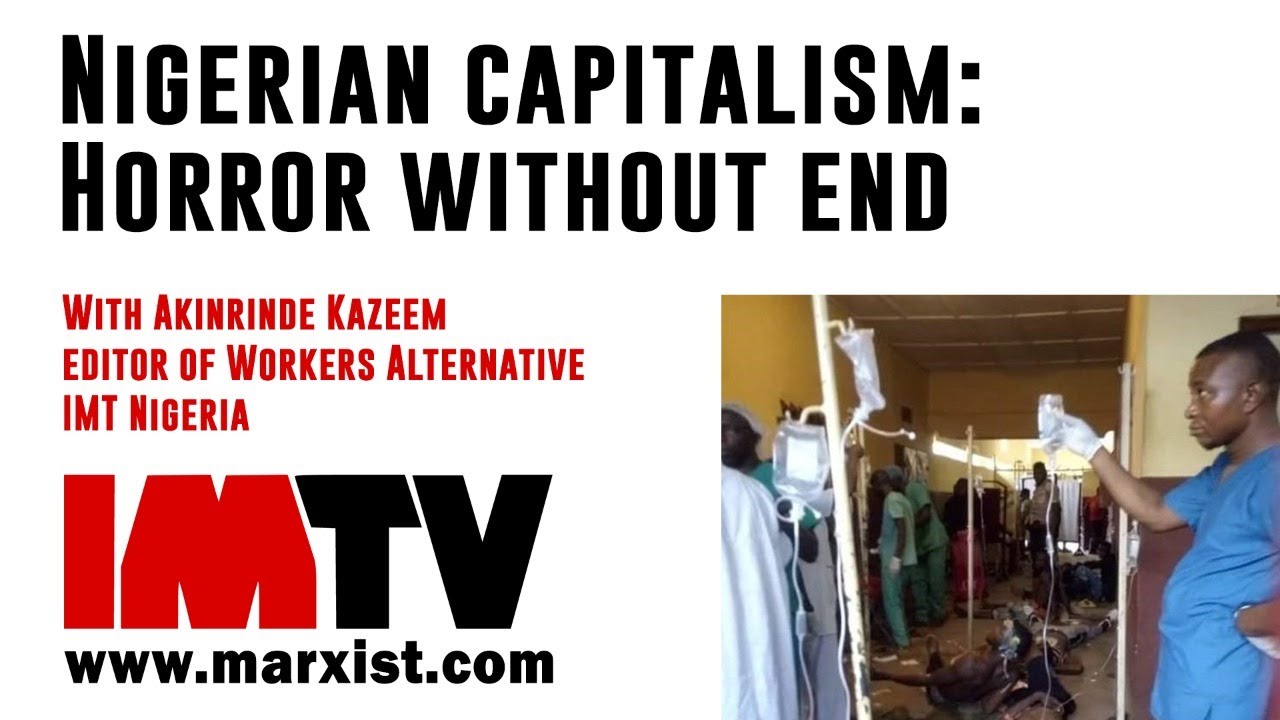In deference to the colourful politician, and one of the intrepid fighters for Nigeria’s independence, the late Adegoke Adelabu, I ought to have titled this the ‘penkele mesi’ of Nigerian capitalism. For the younger reader, it should be recalled that Adelabu was the very popular political figure of the old capital of Nigeria’s Western Region, Ibadan, and a leading member of the most militant anti-colonial party, the NCNC; he would exclaim ‘peculiar mess!’ at whatever he found an incredible outrage. So persistent was he with this exclamation, according to the legend, that the local musicians, who were part of his populist entourage, turned the phrase round in Yoruba, to ‘penkele mesi’. It stuck forever! This week, I have been turning around in my mind the peculiar mess of Nigerian capitalism: its bandit proclivities, the so-called sweetheart deals with favoured cronies of the ruling regime and persons close to President Obasanjo; the hopeless inefficiency that is the hallmark of the system; the implementation of policies that defeat the avowed intentions to build capitalism; the criminal content of privatisation policies; the list is endless. At our Editorial Board meeting last Thursday, one of the more painfully poignant issues that we analysed was the decision by the management of the United Nigeria Textile (UNT) Plc, to lay off over 1,200 workers, due to increasing cost of production and unstable market. The official statement attributed the decision to close down to “the smuggling activities in the country, copyright of our logo and designs from other countries have made the situation even worse … markets have been flooded with inferior and cheaper fabrics. Because of these, our stock keeps on building …due to lack of sales, which is eventually resulting into cash flow problem.” The UNT management went on to lament the “cost of funds from banks for its operations (which) keep rising because of high interest payments.” In reporting the sack of the 1,200 workers, The Guardian newspaper of Thursday, May 25, 2006, had added a background that “The UNT Plc is the only remaining textile (company) operating, albeit, precariously in Kaduna. At least seven of them have closed shop since 1999. They include Supertex, Kaduna Textiles Limited (KTL), Mortese, Finetex and Arewa Textiles Limited.” An angry Adagbo Onoja had reminded our meeting that the collapse of the last of the Kaduna Textile companies signalled the end of the last symbol of the import substitution industrialisation strategy that the Regional Governments of Nigeria had embarked upon during the 1960s. The monsters of globalised capitalism have come in to devour this basic expression of industrialisation, thanks to the anti-national treaties entered into within the ambits of the World Trade Organisation and the implementation of neo-liberal policies by the Obasanjo administration from 1999. For those with a sense of history, the closure of the Kaduna factory is the end of an era; it breaks the industrial backbone which the generation of the Sardauna laboured to provide for the North and Nigeria from the early years of our independence; a policy which saw places like Kaduna and Kano becoming the centre of an active industrialising process. But the closure of UNT was actually part of a process that has led to the disappearance of over half a million textile jobs since the commencement of the neo-liberal reform programmes of the Obasanjo administration in 1999. This is according to Mr Jaiyeola Paul Olanrewaju, the Director-General of the Nigerian Textile, Garment and Tailoring Employers Association, as reported by Daily Trust of Monday, May 29, 2006. Mr Jaiyeola said that before the beginning of the reforms, there were over 50 textile mills in Lagos, employing over a million workers, but today, there are less than twenty operating. He added that the textile industry in the North had collapsed totally, with the recently-closed UNT being the last one. Operatives of the Obasanjo regime often beat their chests about the wonders they have wrought on the fabric of the nation’s economy with their reform programmes. But the truth is that the content of the economic doctrines they impose on our country is not patriotic any set of policies that does not protect Nigerian jobs but pander to the interests of foreign institutions cannot be sold as good for our country, because the ultimate aim of policies should be to defend national sovereignty, protect Nigerian jobs and even strengthen the nation’s entrepreneurial class, if the agenda is to build capitalism. But this is not what the neo-liberal capitalism of the Obasanjo economic team is putting in place. On the contrary, as we have seen in the past seven years, there is a systematic attack on the economic base, and a process of de-industrialisation has taken root in Nigeria The regime has also travelled the route of privatisation of public enterprises, which it sees as the way to cut waste and corruption, while improving service delivery, which the ideologists of privatisation and neo-liberal capitalism argue is the best way to generate economic growth. Unfortunately for Nigeria, the privatisation process of the past seven years has brought out the worst features of capitalist cronyism, corruption and theft of our national patrimony. Let us illustrate with the SOLGAS process in the Ajaokuta Steel Complex. This is a strategic institution that should form the backbone of our industrial take-off; and one that should be providing jobs for thousands of Nigerian working people directly and a multiplier economic effect that would have impacted positively around the country. In line with the raging madness of selling off national assets, unconstitutionally, according to the nationalist economist, Professor Sam Aluko, Obasanjo decided to hand the huge steel complex to a little-known organisation called SOLGAS. So controversial was the tenure of SOLGAS at Ajaokuta that at a point, the Secretary to the Government of the Federation had to issue a query to SOLGAS over allegations that they were stripping the steel complex of vital equipment and selling such equipment. A Senate committee that examined the capacity of SOLGAS to run the project returned an unfavourable report. The SOLGAS tenure was terminated, nobody was punished for the losses suffered by Nigeria, and before we could spell Ajaokuta, another group called Global Steel Infrastructure Holdings, a subsidiary of the Indian Steel Company, ISPAT, came into the frame. I remember just how effusive the Minister of Power and Steel was about the new group. But in recent weeks, the reports coming out of Ajaokuta have not put the controversial privatisation policy of the government of the day in any positive light at all. Vanguard newspaper of Wednesday, May 24, 2006, reported that the Indian company, Global Steel Infrastructure Holdings has already
“stripped and removed equipment of the ASCL (Ajaokuta Steel Company Limited) valued at $5.03 million (about N653.9 million).” These equipment were moved mid-2005 “without the knowledge and consent of the Ministry of Power and Steel or the Federal Government… It was gathered that 163(…) items were listed as spare parts, while another 140 items were listed as consumables.” Although the report added that “the Ministry of Power and Steel had
set up a committee to investigate the allegations,” Liyel Imoke did not tell us that stripping the Ajaokuta Company of its assets was the way Nigeria would take to produce steel.
It seems implicit in the bandit capitalism of the Obasanjo era that national assets must be sold out, either through the dubious processes that we have witnessed in many of these privatisation deals, or such assets are deliberately left to rot and devalue so that they can be sold cheap, as we are witnessing with the long drawn-out saga of NITEL’s privatisation. The NITEL process is one of the most fraudulent undertakings of the Obasanjo regime. In an interview in The Guardian newspaper of May 14, 2006, the Managing Director of Cell Communications Ltd said that “the sale of NITEL has witnessed a lot of underhand activities. Before our very eyes, NITEL was to be sold for about 256 million dollars, a whopping 20 million dollars less than the licence of MTEL… It is on record that despite the massive roll-out of MTN and other networks, the investment that has gone into NITEL far exceeds what has been spent by these other operators.” Of course, the interests that took a decision to sell a vital strategic asset such as NITEL to themselves and their cronies know what they were doing when PENTASCOPE was brought in to under-develop NITEL, devalue it and literally turn it into a worthless carcass! This Day newspaper of Sunday, May 21, 2006 carried out a check which revealed the systematic deterioration of NITEL, the company that was posting huge profits up to the advent of the Obasanjo regime, including the payment of dividends to government. The report said that NITEL liabilities amounted to N73.8 billion in 2003, thanks to the effect of PENTASCOPE’s mishandling of the company; the liabilities increased to N130 billion by 2005. In 2002, it generated pre-tax income of N15 billion; and this had dropped scandalously to only N1.5 billion in 2005, a drop of a sum of N13.5 billion. In the same year of 2002, NITEL generated N40.9 billion in revenue and N33.9 billion in collection; by 2005, it generated only N22.8 billion in revenue and N16.9 billion in collections. The enemies of a publicly-owned telecommunication company as NITEL would deliberateltake decisions to devalue the company and then turn around to complain that it has become hopeless, inefficient, and therefore use that as a reason to sell the company. This is the content of the neo-liberal capitalism that Obasanjo’s much-vaunted Economic Team has perfected for Nigeria in the past seven years. Anything in the public sphere is said to be inefficiently and corruptly run, therefore, we must begin to worship at the altar of market-based capitalism, which is alleged to be efficient, corruption-free, etc. But we know enough; especially with the trials of the executives of ENRON in America that market-based capitalism is not the panacea that the pro-imperialist economic thinkers of the Obasanjo administration want us to believe. It is also imperative to add that capitalism does not work, either in the American, European or even the Asian variants, with the corruption, asset-stripping and overtly unproductive manner that have been perfected under the Obasanjo administration. I don’t accept that the barbarism of capitalism on a world historical scale is the answer to the problems of societal development; but in the context of our developments, there is a peculiar mess at the heart of Nigerian capitalism that must be exorcised by its adherents and supporters, so that the health of our society is not completely destroyed by those more concerned with the bandit propensities of the system in Nigeria. This ‘advice’ has been freely given because a cursory study of the ‘reforming’ capitalism on rampage in the country today reveals that it resembles very much the ‘agbako’ child of Yoruba mythology than any patriotic effort to genuinely institute a systematic project of capitalist development in Nigeria. World history has not shown us any country that has developed on the basis of the assets-stripping, cronyism, a blatant lack of patriotism and corruption that underpin the ‘neo-liberal’ privatisation project of the Obasanjo administration. When I therefore talk of the peculiar mess of Obasanjo’s capitalism, the evidence is all around us: at Ajaokuta, in the NITEL privatisation process; everywhere.


